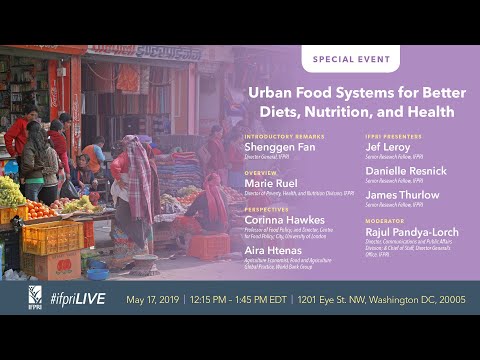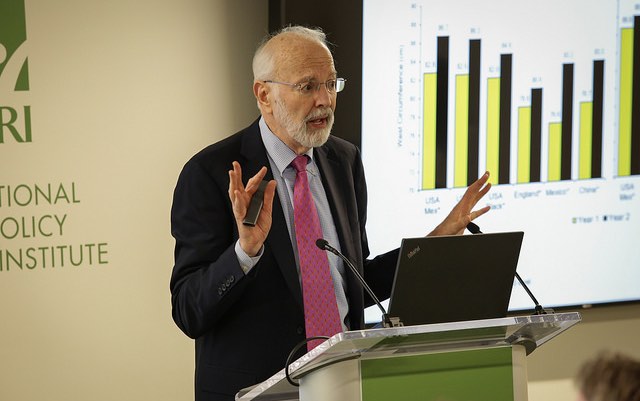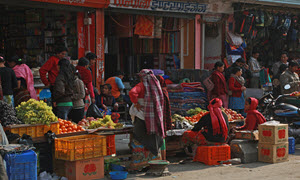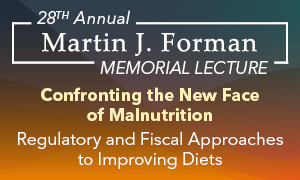The world is rapidly urbanizing. For the first time in history, more than half the global population lives in cities. This figure will rise to two-thirds by 2050, with up to 90 percent of the growth occurring in Africa and Asia. While rapid urbanization creates opportunities for economic growth, especially in low- and middle-income countries, it also comes with unique challenges. As cities expand, they struggle to ensure access to affordable and healthy diets, especially for the urban poor. Unhealthy diets are at the root of all forms of malnutrition and drive such problems as the persistently high rates of maternal and child undernutrition and currently booming rates of overweight, obesity, and diet-related noncommunicable diseases found in urban centers.
To address these issues, the International Food Policy Research Institute (IFPRI) is launching a new research program on urban food systems, diets, and nutrition. This program aims to guide policymakers and other key actors in designing and implementing effective food system policies to support healthier diets and optimal nutrition and health for the urban poor. This comprehensive, multi-country research program will be organized in four research areas, with two policy objectives.
As a leader in food policy research, with national, regional, and global networks and partnerships, IFPRI is uniquely suited to spearhead this comprehensive, multi-country research program. IFPRI’s new urban research program will generate a rich body of evidence and set of analytical tools to guide policymakers and other key actors in designing and implementing effective food system policies to support healthier diets and optimal nutrition and health for the urban poor. We will conduct in-depth case studies in cities of all sizes in low- and middle-income countries around the world. These will analyze all or a subset of the four research areas proposed to generate a holistic view of the challenges and opportunities confronting the urban poor. The findings will provide a comprehensive understanding of how food systems and food environment policies can be leveraged to respond to the unique needs of cities’ most vulnerable populations. For more information on the objectives and research areas, please see the Program Brochure.















